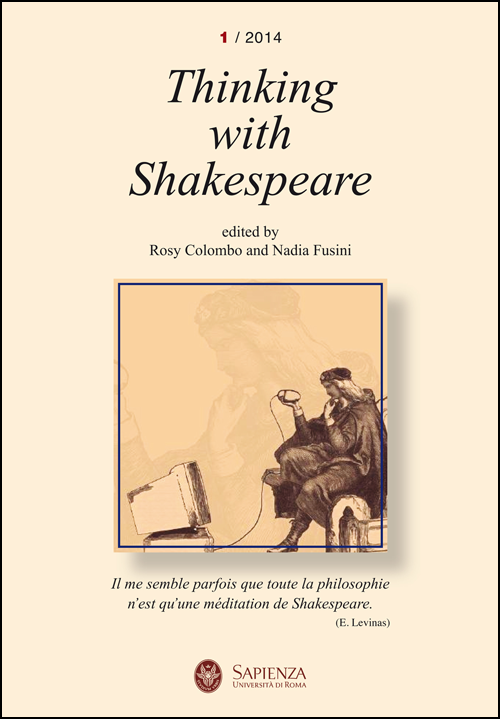Hamlet and the Passion of Knowledge
Abstract
This essay explores the ways Hamlet dramatizes early modern epistemophilia, a drive towards knowledge that is infused with passion and triggered by desire. Hamlet’s desire to know “what lies inside” picks up rhetorical, scientific and philosophical threads of knowledge to see whether they are able to dissect, along with the deep recesses of the body, the density of language and of time. I submit that Hamlet’s quest for knowledge finds its sense and its urgency in the Ghost’s poisonous story (I.v), where the biblical Fall is said to be beyond salvation and yet imposed upon as the foundational scene of action. In fact, I propose to read the whole play as a striking revisitation of that Fall, which stages and re-enacts the trauma of Protestant modernity. Hamlet is thus seen to partake in the early modern interrogation of the Scriptures, an impressive cultural venture whose political and religious implications the play masterfully foregrounds. More than any biblical exegete could have done, Hamlet shows the ways in which desire feeds the search for knowledge. And through a close reading of selected passages, I set out to trace and explore the loci of such desire. I also point to ways in which Hamlet’s lines of questioning – of the body, of Time, of memory techniques and of their encroachment upon oblivion – ultimately converge into one, all-encompassing interrogation of knowledge.
Keywords: Hamlet, Epistemophilia, Traumatized memory, Desire


